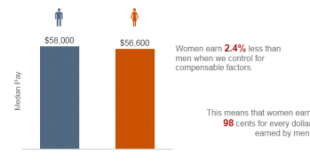real-world economics reviewissue no. 86 download whole issue Who is behind the campaign to rid the world of cash?Norbert Haering download 2 The trouble with human capital theoryBlair Fix download 15 A progressive trade policyDean Baker download 33 The transformational role of the Great RecessionConstantine E. Passaris download 45 Realizing nudging’s potentialJohn F. Tomer download 66 A comment on corporationsPeter Radford download 83 The...
Read More »Demise of the Dollar?
from Asad Zaman SADLY, it is true that ‘money makes the world go round’. But, it is also true that very few people understand how. This article is an attempt at explaining the basics of our global trading system. A good starting point is the Bretton-Woods conference which took place in 1944, while the Second World War was still raging. The two World Wars had drained the treasuries of the European states, making the gold standard impossible to maintain. An entirely new system had to be...
Read More »Open thread Dec. 11, 2018
‘Controlling for’ — a methodological urban legend
from Lars Syll Trying to reduce the risk of having established only ‘spurious relations’ when dealing with observational data, statisticians and econometricians standardly add control variables. The hope is that one thereby will be able to make more reliable causal inferences. But — as Keynes showed already back in the 1930s when criticizing statistical-econometric applications of regression analysis — if you do not manage to get hold of all potential confounding factors, the model risks...
Read More »Sandpit
A new sandpit for long side discussions, conspiracy theories, idees fixes and so on. Like this:Like Loading...
Read More »Will degrowthing save the planet?
from Dean Baker [This is the third piece in an exchange with Jason Hickel on growth. Hickel’s response will be the last piece in the series.] Jason Hickel responded to my earlier piece on degrowth arguing that in fact economic growth is inconsistent with a sustainable environment and that we have to get people to reject growth as an economic goal if we are going to limit the damage from climate change and excessive resource use more generally. First, let me point out where we do agree. It...
Read More »Michigan’s Lame Duck Republican Legislature
Michigan Electablog “Lame Duck Republican Majority at work in Michigan.” • Accrued Sick Time: This was one of the proposals not allowed to go to the ballot. Why? Because if it passed and it would have, Repubs would have needed 2/3rds vote to overturn it. Instead they passed it before November 6th and now they are altering it by taking coverage responsibility from over 93% of Michigan’s firms. The threshold for exemption from the law was raised from 5 in...
Read More »DSGE — models built on shaky ground
from Lars Syll In most aspects of their lives humans must plan forwards. They take decisions today that affect their future in complex interactions with the decisions of others. When taking such decisions, the available information is only ever a subset of the universe of past and present information, as no individual or group of individuals can be aware of all the relevant information. Hence, views or expectations about the future, relevant for their decisions, use a partial information...
Read More »Stability without growth: Keynes in an age of climate breakdown
from Dean Baker [This post is by Jason Hickel. He is responding to a post I did on the possibility of having growth in a sustainable economy. I will post a rejoinder later in the week. Jason will then get the last word in this exchange.] What do Keynesian Democrats think about the movement for post-growth and de-growth economics? Dean Baker, a senior economist at the Center for Economic Policy Research in Washington, DC, has given us some insight into this question. In a recent blog post,...
Read More »A little knowledge
from Peter Radford A little knowledge goes a long way. That’s the saying, correct? Well you’d never know it by looking at economics. It’s hard to find knowledge anywhere. Now I’m not being facetious about the gaps in economic theory. Let’s all give the discipline its due and say that it has done a masterful job of getting as far as it has based on the limitations it bounds itself with. It’s just that sometimes those limitations are glaring and can stop someone in their tracks if...
Read More » Heterodox
Heterodox


